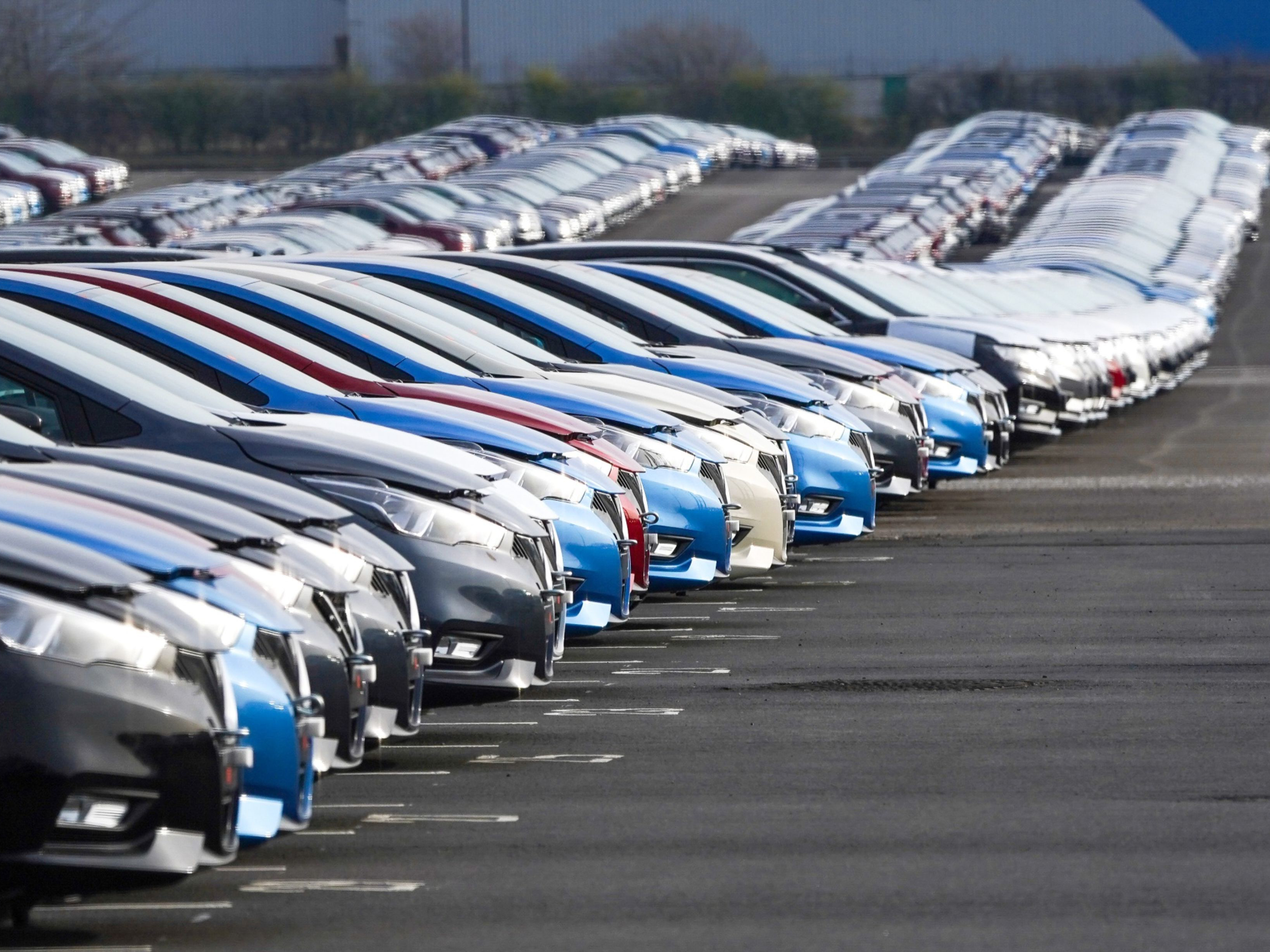
Visit Our Sponsors |
|
|
|
|
|
|
|
|
|
|
|
|
|
|
|
|
|
|
|
|
|
|
|
|
|
|
|
|
|
|
|
|
|
|
|
|
|
|
|
|
|
|
|
|
|
|
|
|
|
|
|
|
|
|
|
|

Near-sighted planning, supply-chain complexities and a tradition of keeping inventories low caused the semiconductor shortage that is now forcing carmakers to idle production lines and straining their relationship with chip manufacturers.
Seeds of the imbroglio were sown almost a year ago as the virus outbreak led to plunging car demand, prompting auto-chip companies to slash orders. But when they wanted to increase supply toward the end of 2020, they struggled to secure capacity at Taiwan Semiconductor Manufacturing Co. and other contract chipmakers that were busy servicing a boom in demand for gadgets that help housebound consumers stay connected, according to people familiar with the situation.
While publicly assuring the problem is solvable, in private the parties are pointing fingers. Chipmakers say car companies’ preference for low inventories hurt their planning, while auto and part manufacturers say the supply chain is thrown into disarray as semiconductor makers drag their feet. Automakers also contend chipmakers are prioritizing consumer electronics because those devices provide the bulk of their sales and profits. Chipmakers deny they are playing favorites.
The quagmire reveals the risks for automakers from Ford Motor Co. to Volkswagen AG as vehicles become smarter and technologically more complex. Carmakers with more software and chip expertise are set to face a smoother ride, while those whose traditional strength is metal-bending are potentially more prone to supply hiccups.
“Even if the OEMs say they didn’t over-correct, they may not have been thinking far enough ahead,” said Tor Hough, founder of Elm Analytics, a supply-chain research firm based in the Detroit area, referring to automakers, or original equipment manufacturers in industry parlance. “They’re also very wedded to ‘lean manufacturing’ — so keeping low inventory to be more cost efficient.”
Autos vs. Smartphones
Carmakers don’t deal directly with TSMC and other contract chipmakers. Instead, they work with auto-part suppliers like Robert Bosch GmbH and Continental AG, which in turn deal with automotive-chip designers including NXP Semiconductors NV and Infineon Technologies AG.
While those two European chipmakers both make some parts in-house, they outsource a significant portion of production to TSMC and other foundries. It’s difficult for automotive-chip designers to get their orders prioritized by foundries because their volume is dwarfed by their consumer-electronics peers.
Because of carmakers’ “just-in-time” manufacturing model, their suppliers worried about quick inventory buildups and canceled orders originally planned for foundries in the first half of 2020, the people said. At the same time, foundries began seeing a surge in demand for gadget chips after Apple Inc., Samsung Electronics Co. and Chinese brands prepped an avalanche of 5G devices including the iPhone 12, which requires as much as 40% more silicon content as 4G handsets.
One contract chipmaker notified all its customers in the third quarter that it might be time for them to place more orders as it anticipated a rebound in demand, but automotive clients demurred and ended up being the last ones to seek more capacity, one of the people said.
Appeal to Governments
TSMC’s automotive customers continued to decrease demand in the third quarter, and the chipmaker only began to see sudden recovery in automotive orders in the fourth quarter, Chief Executive Officer C.C. Wei said in an earnings call earlier this month. By contrast, makers of consumer electronics and other hardware quickly built up chip inventories above the usual seasonal level, and are continuing to do so as they fret about potential future supply disruptions.
The shortage has been exacerbated by a lack of capacity at assemblers including ASE Technology Holding Co., a person familiar with the matter said. Chip assemblers like ASE represent the critical final stage in finishing and preparing a chip for use, but the company’s production expansion has been hindered by an equipment supplier’s tardiness in delivering new gear, the person said. A further squeeze to the global supply was caused by the Trump administration blacklisting China’s Semiconductor Manufacturing International Corp. in December.
Once European and U.S. carmakers realized they had a problem, they appealed to officials in Taiwan, home to TSMC and other leading foundries including United Microelectronics Corp., for assistance in stabilizing their chip supply.
The American Automotive Policy Council, which represents major U.S. car companies, sought out the Taiwanese government for help, according to people familiar with the matter. In addition, General Motors Co. spoke to Taiwanese officials, and got them to help relay its request to TSMC, Bloomberg News has reported. The European Union has approached Taipei about the same issue, and Volkswagen has separately reached out as well, according to a person familiar with the matter.
“We have requested that the U.S. government help us find a solution to the problem because it will diminish our production and have a negative impact on the U.S. economy until it’s resolved,” Matt Blunt, president of the American Automotive Policy Council, said in an interview.
Scaling Back Output
Because chip production requires a lead time of about three months, the impact will last throughout the first half and could bleed into the third quarter, Blunt said. His organization is working with the Biden administration on the issue, he said.
Ford, Toyota Motor Corp., Nissan Motor Co., VW and Fiat Chrysler Automobiles NV — now a part of Stellantis NV — are among global carmakers that have scaled back output due to a lack of chips required for a wide range of components, from brakes to windshield wipers.
With vehicles adding entertainment and autonomous-driving features, the amount of chips required is increasing and the supply chain becoming more complex. A car from a premium brand can require more than 3,000 chips, and even if just one is missing, the vehicle won’t get completed.
“There are more chips, more varieties of chips. It’s not one batch of chips that went bad and they’re struggling with recovering that one chip,” said Hough at Elm Analytics. “The ecosystem upstream of the OEMs stopped purchasing the chips they used in production as the manufacturing went down.”Another bottleneck lies with smaller automotive-chip designers which supply critical chips to the whole industry and depend entirely on foundries. They often lack bargaining power to secure timely production because of their modest sizes.
While automotive supply-chain managers are adept at containing short-term crises like the explosion in the northern Chinese port of Tianjin in 2015, they tend to be slower in making bigger changes that would help them deal with potential long-term disruptions, Elm Analytics’ Hough said.
Foundry Spending Surge
Bosch, the German car-parts maker, said its chips supply has been significantly diminished because a chipmaker’s expansion and production increases were delayed by the pandemic. In an emailed statement, Bosch said it is in daily contact with suppliers and customers to mitigate the impact.
The shortage may start to ease as TSMC boosts its spending to a staggering $28 billion for 2021, with the foundry pledging this month that automotive chips will be a priority. The company has begun to offer more capacity in recent days to at least one automotive chip designer, although the volume still isn’t enough to satisfy demand, according to a person with direct knowledge of the matter.
The situation isn’t as devastating as last spring’s car-plant shutdown that spanned the globe, said Sig Huber, a consultant at Conway MacKenzie and a former head of purchasing at Fiat Chrysler.
“This will be more sporadic, a plant here or a plant there, for a shorter period of time, as opposed to a full industry shutdown,” Huber said. “This will not have anywhere near the impact of the production losses we saw last year.”
RELATED CONTENT
RELATED VIDEOS
Timely, incisive articles delivered directly to your inbox.







